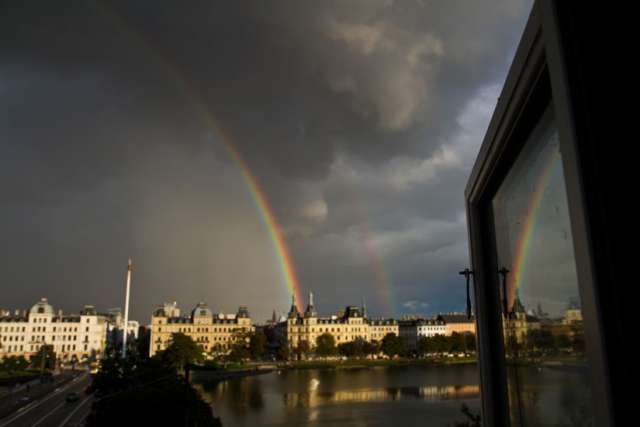Very few people can ignore a rainbow. Sometimes we are treated to double and even triple rainbows, and it is interesting to observe people stopping to stare and wonder. Besides being very beautiful, the rainbow has always been a vibrant symbol in many cultures. We can remember the legend about finding the pot of gold at the end of the rainbow. Most of all, it is a symbol of hope, promise and fulfilment.
To the ancient Israelites, the rainbow was a symbol of hope and the steadfast love of God. Gazing on the rainbow, their stirred hearts and sense of awe could mean only one thing: God was not against them — all of creation was precious to God and it would not be destroyed again. Even if a universal flood did not actually occur, God’s covenant with humanity did and should be the focus of our attention. This covenant of Noah, as it is sometimes called, was with all of creation and all living creatures.
Humans were merely one party to this promise of blessing. This is echoed in Paul’s Letter to the Romans (8:18-25), in which he stated that all creation was in a state of distress and decay and longed for redemption and renewal. The life, death and resurrection of Christ had consequences for the entire created order, not just human beings. Creation is “charged with the grandeur of God” (Hopkins) when we choose to stop our compulsive busyness and absorption in the details of everyday living. In other words, we have to pause and look up in order to receive the symbol of hope!
Technology has created a captivating virtual reality but it pales next to the reality that God has created for us. In the first chapter of Romans, Paul insists that creation communicates knowledge and awareness of God. Perhaps gazing on the many manifestations of God’s power and love in creation, without trying to analyse or control it, would lift our hearts and give us a sense of hope. The world is in desperate need of that.
What happened to those people who lived and died before the coming of Christ? The author of 1 Peter struggled with that question, and his insight was that no one has been left behind. Christ revealed Himself to all those souls so that they would have the opportunity for faith. Just as water saved some from the consequences of human sin in the form of the ark, so water saves people through baptism in every age. God has always been working for the salvation of humanity and always will be.
Jesus had to undergo the passage through water as part of the human experience. It was not a charade at all, for the Spirit immediately “drove” Jesus — a rather strong word — out into the wilderness to be tested and tempted. This was necessary preparation for His ministry, for He did not just step effortlessly into His role as the Messiah. After passing the test, He began His ministry with a proclamation that was deceptively simple but loaded with implications. The time was fulfilled, in that the period of waiting was over and the divine moment had arrived for God’s intervention in human history. God was imposing divine rule and will on a rebellious and unjust world. People were invited to look upon the new spiritual/social order as good news, although it seemed like bad news to those who had a stake in the unjust order. In order to receive this good news, repentance was necessary — a change or inner revolution in mind and heart. People had to adopt a new set of values and see thing in an entirely different way.
That challenge is still with us. Christianity — at least mainstream versions — is in decline. Perhaps we have lost the sense of “good news” that captured the hearts and imaginations of early Christian believers. We might have too big a vested interest in the status quo and derive an inordinate amount of benefit from the many unjust systems that rule our world with an iron fist. The answer: repentance, not of the superficial moralizing variety, but a thorough and fearless examination of our fundamental values and way of life. If humanity is to survive and prosper, an inner transformation is essential.


